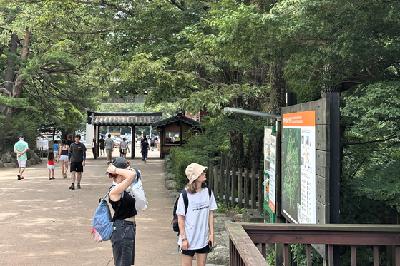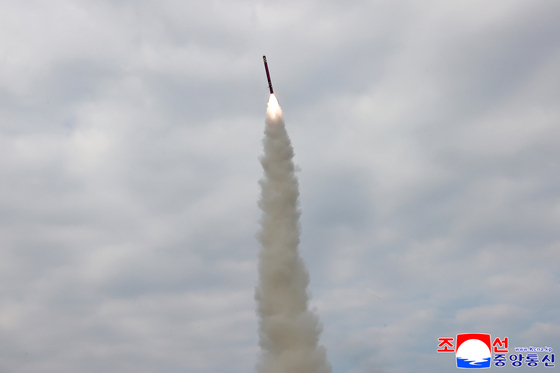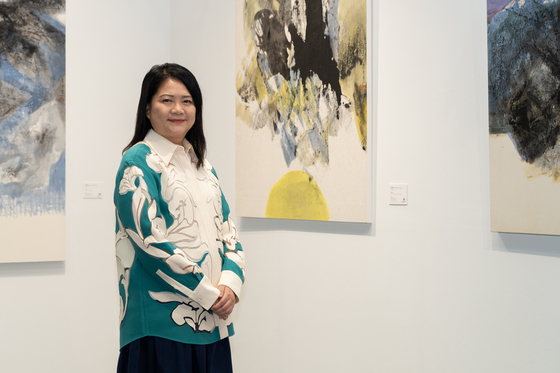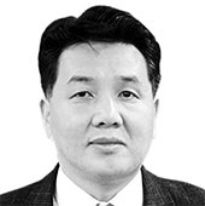Author Cheon Seon-ran and the good side of the zombie apocalypse
Update: 2025-10-28
Description
This article is by Choi Hye-ri and read by an artificial voice.
What if the end of the world wasn't a tragedy, but a chance to begin again? In Cheon Seon-ran's new collection of linked short stories, the zombie apocalypse doesn't just end life as we know it - it reveals what else life could be.
These scenes are depicted in Cheon's new short story collection, "Where No One Comes," which will be published on Oct. 27. Though the time and place change across the book's three parts, they all share the same universe - Earth has collapsed following a zombie virus outbreak.
In the first story, set in the year 2109 and aboard a spaceship bound for "Ersa," a fictional planet 320 light years from Earth, the protagonist Ok-ju wakes from hibernation. A voice, belonging to her colleague Meilin, says, "Ok-ju, the world's over." The Earth they left behind has perished due to a massive infection.
The second story is set back on Earth, five years after the zombie outbreak, where a few survivors remain. One of them, protagonist Je-bi meets Eun-mi and her daughter Noh-yun, who has a developmental disability. Eun-mi tells her daughter, "You don't have to stop singing. The world's ended, so nothing has meaning any more."
In the third story, in a much later future, Earth is inhabited only by zombies, animals and plants. Just before undergoing assisted suicide, "I," in first person, am left in a coma after my doctor becomes infected. After waking up much later, I listen to a recording left behind by my now-zombified wife: "The world's ended. Completely destroyed."
"When I create a universe, it always feels like a missed opportunity to show only one life. A single world can contain so many different lives - that's what draws me to writing linked stories," Cheon told the JoongAng Ilbo in an interview on Oct. 21, explaining why she gravitates toward interconnected storylines.
Cheon began her literary career in 2019 with "A Broken Bridge," published on the online platform BritG, run by publishing house Minumsa's affiliate Golden Bough. That same year, she won the grand prize at the Korea Science Literature Award for her novel "A Thousand Blues," which was published in print in 2020.
As of this October, "A Thousand Blues" has sold 200,000 copies over 48 printings. Set in a near future where humanoid robots are common, it has become Cheon's best-known work. It was adapted for both stage and musical theater last year, and in May, Warner Bros. Pictures announced a film adaptation is in the works.
Cheon has released a new story, long or short, nearly every year since her debut. But "Where No One Comes" holds special meaning for her. It was conceptualized six years ago and contracted with publisher Hubble before she even won the Korea Science Literature Award. She has often cited "zombie apocalypse" as one of her favorite genres in essays and interviews.
After writing the third part "Do You Know Us" of "Where No One Comes," which centers on a queer couple, Cheon went back and revised the first and second parts significantly.
"Once I started writing the third story, I had this thought - the end of the world feels dark and heavy, but is it really miserable for everyone? For some people, the collapse of existing systems could be liberating. That's where the third story came from, and it helped me finish the others too," she said.
The characters in "Where No One Comes" are people often excluded or marginalized by mainstream systems. Part one centers on individuals who have experienced domestic violence and form an alternative family. Part two follows disabled and nondisabled people caring for one another in the rubble left behind by the outbreak. While embracing the allure of the zombie genre, Cheon explores relationships that become more visible - and more meaningful - after institutional collapse. The characters share, in one way or another, a wide-reaching definition of love.
Cheon revealed more about her creative mind and her stories. The following inter...
What if the end of the world wasn't a tragedy, but a chance to begin again? In Cheon Seon-ran's new collection of linked short stories, the zombie apocalypse doesn't just end life as we know it - it reveals what else life could be.
These scenes are depicted in Cheon's new short story collection, "Where No One Comes," which will be published on Oct. 27. Though the time and place change across the book's three parts, they all share the same universe - Earth has collapsed following a zombie virus outbreak.
In the first story, set in the year 2109 and aboard a spaceship bound for "Ersa," a fictional planet 320 light years from Earth, the protagonist Ok-ju wakes from hibernation. A voice, belonging to her colleague Meilin, says, "Ok-ju, the world's over." The Earth they left behind has perished due to a massive infection.
The second story is set back on Earth, five years after the zombie outbreak, where a few survivors remain. One of them, protagonist Je-bi meets Eun-mi and her daughter Noh-yun, who has a developmental disability. Eun-mi tells her daughter, "You don't have to stop singing. The world's ended, so nothing has meaning any more."
In the third story, in a much later future, Earth is inhabited only by zombies, animals and plants. Just before undergoing assisted suicide, "I," in first person, am left in a coma after my doctor becomes infected. After waking up much later, I listen to a recording left behind by my now-zombified wife: "The world's ended. Completely destroyed."
"When I create a universe, it always feels like a missed opportunity to show only one life. A single world can contain so many different lives - that's what draws me to writing linked stories," Cheon told the JoongAng Ilbo in an interview on Oct. 21, explaining why she gravitates toward interconnected storylines.
Cheon began her literary career in 2019 with "A Broken Bridge," published on the online platform BritG, run by publishing house Minumsa's affiliate Golden Bough. That same year, she won the grand prize at the Korea Science Literature Award for her novel "A Thousand Blues," which was published in print in 2020.
As of this October, "A Thousand Blues" has sold 200,000 copies over 48 printings. Set in a near future where humanoid robots are common, it has become Cheon's best-known work. It was adapted for both stage and musical theater last year, and in May, Warner Bros. Pictures announced a film adaptation is in the works.
Cheon has released a new story, long or short, nearly every year since her debut. But "Where No One Comes" holds special meaning for her. It was conceptualized six years ago and contracted with publisher Hubble before she even won the Korea Science Literature Award. She has often cited "zombie apocalypse" as one of her favorite genres in essays and interviews.
After writing the third part "Do You Know Us" of "Where No One Comes," which centers on a queer couple, Cheon went back and revised the first and second parts significantly.
"Once I started writing the third story, I had this thought - the end of the world feels dark and heavy, but is it really miserable for everyone? For some people, the collapse of existing systems could be liberating. That's where the third story came from, and it helped me finish the others too," she said.
The characters in "Where No One Comes" are people often excluded or marginalized by mainstream systems. Part one centers on individuals who have experienced domestic violence and form an alternative family. Part two follows disabled and nondisabled people caring for one another in the rubble left behind by the outbreak. While embracing the allure of the zombie genre, Cheon explores relationships that become more visible - and more meaningful - after institutional collapse. The characters share, in one way or another, a wide-reaching definition of love.
Cheon revealed more about her creative mind and her stories. The following inter...
Comments
In Channel

























